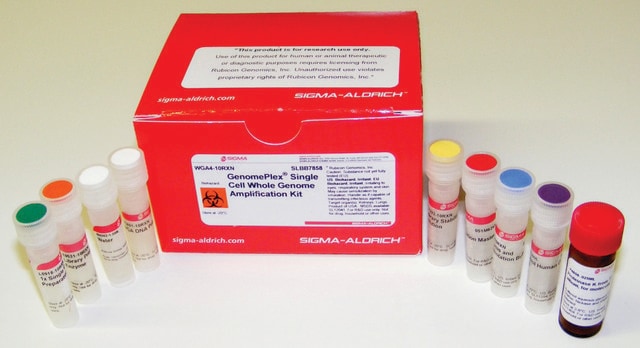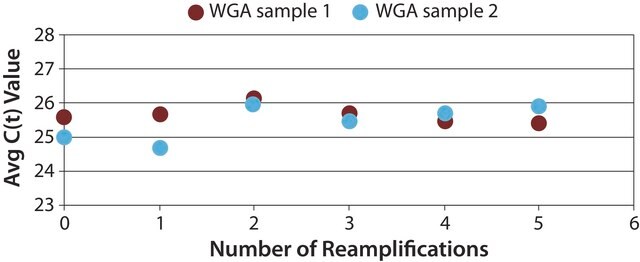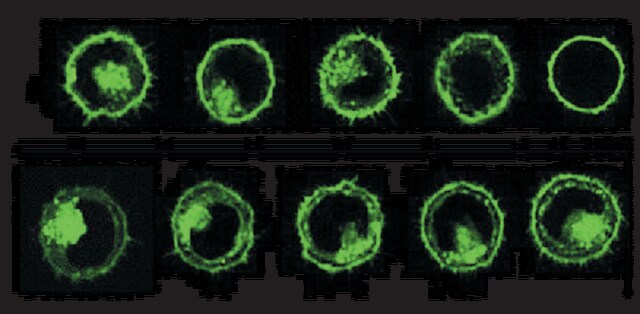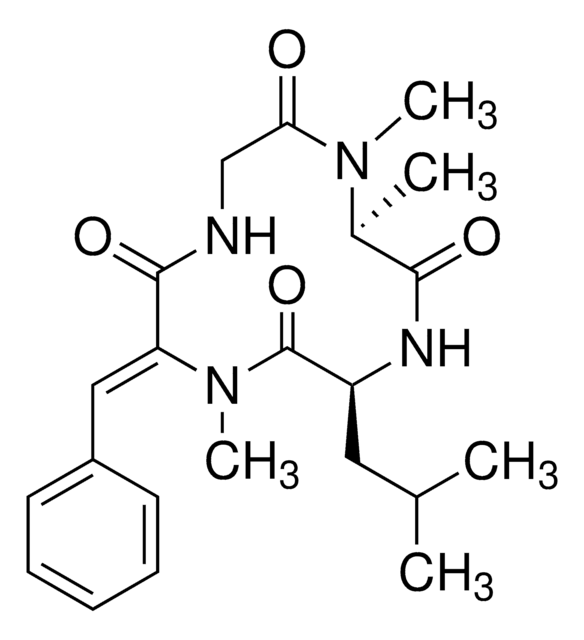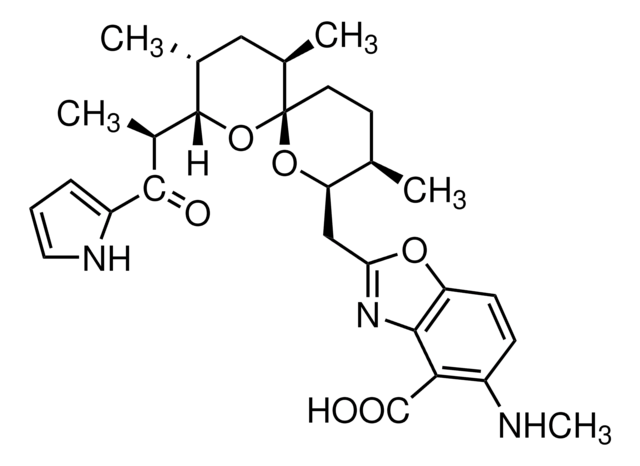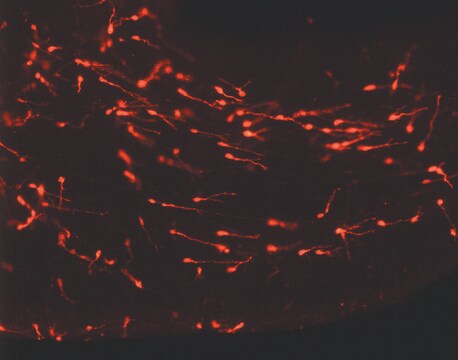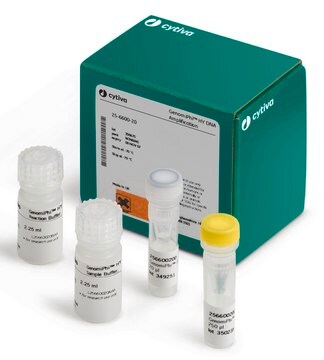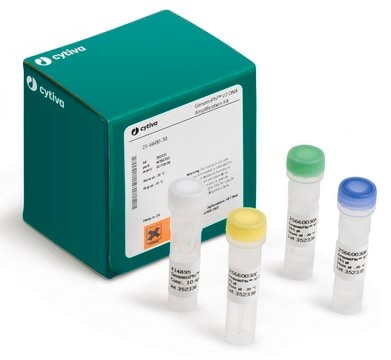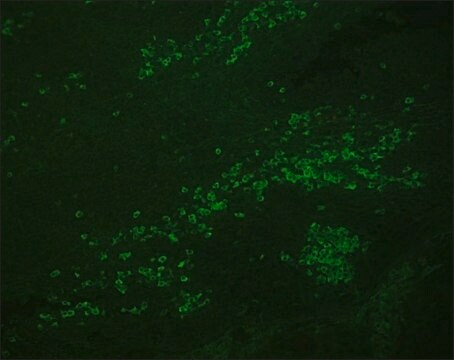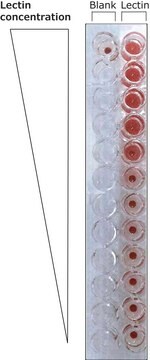WGA1
GenomePlex® Whole Genome Amplification (WGA) Kit
Kit for whole genome amplification from a variety of DNA sources including FFPE tissue
About This Item
Produits recommandés
Niveau de qualité
Technique(s)
whole genome amplification: suitable
Conditions d'expédition
wet ice
Température de stockage
−20°C
Description générale
WGA Kit utilizes a proprietary technology based on random fragmentation of genomic DNA and conversion of the resulting small fragments to PCR-amplifiable library molecules flanked by universal priming sites. WGA is achieved by PCR amplification of the library molecules using universal oligonucleotide primers.
GenomePlex method allows the researcher to generate a representative, ~500-fold amplification of genomic DNA. The amplification yield is dependent on the purity and amount of starting material. This kit contains all the required reagents to perform library preparation and fragmentation.
Application
Caractéristiques et avantages
- Higher yield from minimal template: Amplification of nanogram amounts (10ng) of genomic DNA to microgram yields (5-10 μg) in less than about three hours
- Nanograms of samples can be preserved at –20 °C for future use
- Choose from a variety of DNA sources: whole blood, buccal swab, blood card, plant, soil, and formalin-fixed paraffin-embedded tissue (FFPE)
- Compatible with a wide variety of downstream applications such as TaqMan® and BeadArray assays
- Universal primers
- Whole-genome representation with no detectable bias
- Increased accuracy in amplification produces no amplicon in the negative control reactions
Autres remarques
Informations légales
Composants de kit également disponibles séparément
- W4502Water, Nuclease-Free Water, for Molecular BiologyFDS
En option
Produit(s) apparenté(s)
Code de la classe de stockage
10 - Combustible liquids
Classe de danger pour l'eau (WGK)
WGK 3
Point d'éclair (°F)
Not applicable
Point d'éclair (°C)
Not applicable
Certificats d'analyse (COA)
Recherchez un Certificats d'analyse (COA) en saisissant le numéro de lot du produit. Les numéros de lot figurent sur l'étiquette du produit après les mots "Lot" ou "Batch".
Déjà en possession de ce produit ?
Retrouvez la documentation relative aux produits que vous avez récemment achetés dans la Bibliothèque de documents.
Les clients ont également consulté
Protocoles
Archived formalin-fixed and paraffin-embedded (FFPE) tissue collections represent invaluable resources for studying pathogenesis of cancer and a variety of other diseases.
Archived Formalin-fixed, Paraffin-embedded (FFPE) tissue samples are invaluable resources for profiling gene expression and studying a variety of diseases.
Genomic DNA from soil samples can be easily damaged by nucleases and contaminating debris resulting in low DNA yields. As a result, the researcher’s ability to perform downstream analysis may be compromised. After isolating DNA from the soil sample, the GenomePlex® Whole Genome Amplification Protocol is followed
GenomePlex is a Whole Genome Amplification (WGA) method that allows the researcher to generate a representative, 500-fold amplification of genomic DNA
Contenu apparenté
GenomePlex is a Whole Genome Amplification (WGA) method that allows the researcher to generate a representative, 500-fold amplification of genomic DNA
GenomePlex® Whole Genome Amplification is the method of extracting DNA from the animal sample. GenomePlex® products have been used to amplify genomic DNA from chicken, porcine, bovine, fish, and shrimp source.
Notre équipe de scientifiques dispose d'une expérience dans tous les secteurs de la recherche, notamment en sciences de la vie, science des matériaux, synthèse chimique, chromatographie, analyse et dans de nombreux autres domaines..
Contacter notre Service technique
